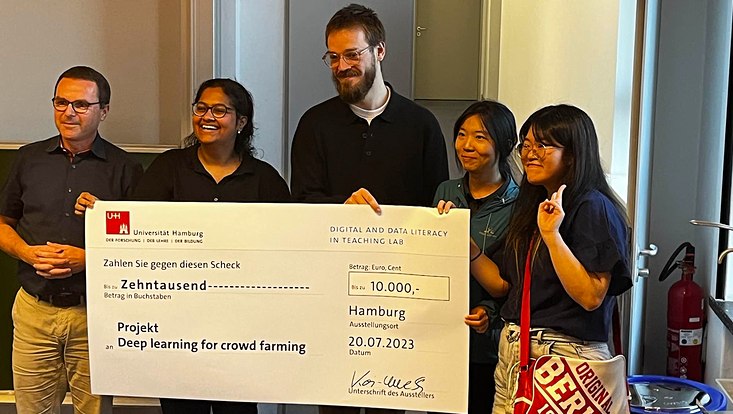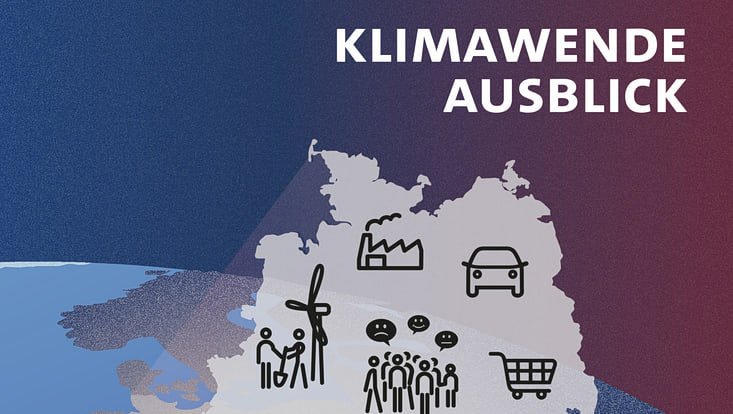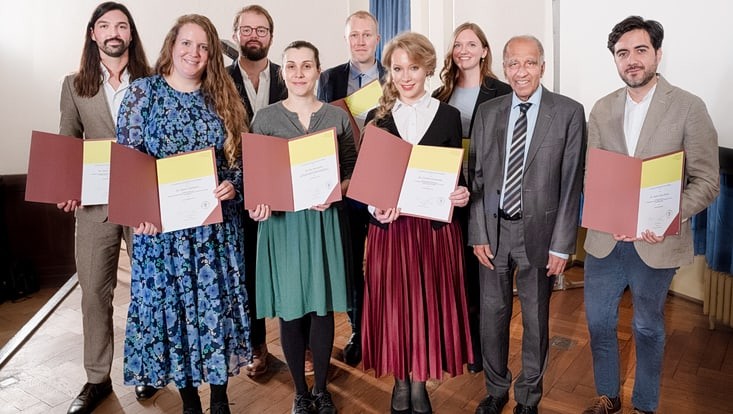and Society (CLICCS)
Success at the Data Science SlamDDLitLab funds SICSS research group with 10,000 euros
24 August 2023

Photo: A. Pereira Santos, Sojung-Oh
How do local and sustainable farmers know where demand for their products is highest? A digital platform that combines algorithms and road maps could help. Gicela Vergara, Ferdinand Hölzl, Shivanshi Asthana, Shuyue Qu and Sojung Oh from the CEN Graduate School SICSS received 10,000 euros to implement this data-driven project idea.
Congratulations! What is so unique about your project that you won the award?
We are very excited – also because ten other great teams will be funded for the upcoming semester. Our project is interdisciplinary and innovative. We combined freely available geographic data on demographics and producer location as derived from Handelskammer and also Urban Data platform, deploying OpenStreetMap. To date, there has been very little work that has used street maps and algorithms for machine learning. Through Python programming and integrating different data sources, we are coming up with new insights.
Who can benefit from this information and how?
Clearly sustainable and local farmers in the Hamburg area. Our goal is to show them where their products are most in demand via a digital platform. Information on areas with high purchasing power gives producers the opportunity to decide in which supermarket branch, with which strategy and at which price they sell their products. Rather at the discounter in Norderstedt or at the organic supermarket on the Alster? Our platform tells them.
And consumers also benefit from our project. Via the platform, they can find locations of local farmers and learn about their products. As a result, consumers can feed themselves conveniently and with sustainably produced food.
Does the city also benefit from this?
Our project contributes to two goals: The development of sustainable cities and communities, and sustainable consumption and production. By strengthening local supply chains and promoting the consumption of regional products, we are moving closer to these sustainable goals. Hamburg will also benefit from this.
Why did you choose machine learning for this project?
Because machine learning is very powerful in processing complex and large data sets. Machine learning algorithms can efficiently process and analyze large amounts of data and make it possible to trace correlations. These are not so easy to identify using traditional statistical methods.
Do you already have plans for how you will use the prize money?
We will be employed by DDLitLab starting next semester and work on the project with the help of the 10,000 euros. It will be a challenging semester – but we already have many ideas that we want to implement.


